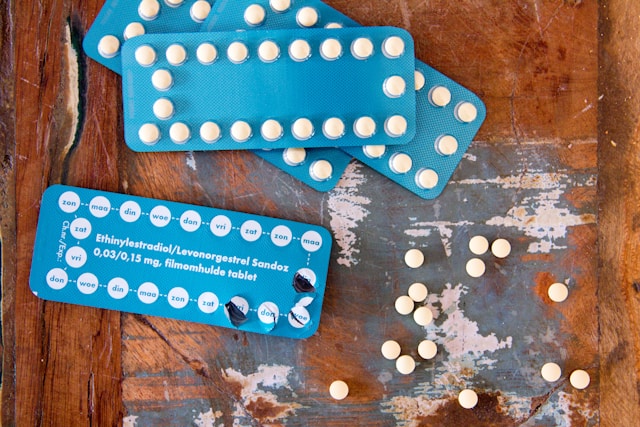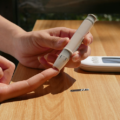Last weekend I had the privilege of speaking at a much overdue conference on hormonal contraceptive safety – the Contraceptive Conundrum. I was charged the unenviable task of giving the ‘overview of everything’ talk and providing a framework through which to view these medications; not easy in a 45 minute presentation. Needless to say, there was a tremendous amount of information omitted from my talk. I will be sharing some of this information in series of blog posts over the coming weeks. The presentation was videotaped and I will post it when it becomes available. For the time being, however, I would like to offer up the power point (below) and answer some of the questions posed by audience members that I was unable to address or address fully given the time constraints.
Best Medical Journals
One of presumably less controversial questions I was asked was which medical journals I prefer. As it turns out, even this question inspires indignation on social media. I am strong proponent of open access journals and the entire open data movement. I believe that health research should not be hidden behind a paywall and the raw data behind drug safety trials ought to be readily available for independent analysis and scrutiny. Indeed, all science should be in the public sphere and a part of public discourse. As a matter of course, science should not be available only to the privileged few. The mere suggestion that I prefer open access journals, however, ignited a heated debate on Twitter; the instigators of which suggesting this preference supersedes attempts to access paywalled articles. Let me assure you it does not. I always track down primary sources. Nevertheless, for the reasons stated above and many more, my preference is for open access journals.
Hormonal Contraceptives and IVF
Another audience member asked about the research and risks associated with the use of hormonal contraceptives and IVF. I should preface my response with a disclaimer: I am no expert in IVF, however, I have written about fertility medicine on a number of occasions (here, here, here), mostly with regard to this specialty’s hubris and egregious lack of insight or concern regarding the longer term consequences of many of their practices. As a point of consideration, I write about the hubris and lack of research that pervades all of women’s healthcare. Those are my biases, do with them what you will.
As far as the use of hormonal contraceptives and IVF are concerned, the research is mixed at best and unacceptably limited in scope. The reasoning for using oral contraceptives in advance or in conjunction with IVF treatments ranges from the ease of cycle scheduling to a purported increase in oocyte yields. From an IVF expert:
In my view, it is not only acceptable, but even ideal to take the BCP [birth control pills] for at least one cycle prior to starting COH [controlled ovarian hyperstimulation] in preparation for IVF. Doing so allows one (without prejudice) to better plan and time cycles of IVF. Furthermore, since the BCP also suppressed LH, it is often especially advantageous in older women, in women with diminished ovarian reserve and in those with PCOS (in whom high LH levels can compromise egg/embryo quality).
Despite the perceived utility of these medications, some research suggests that perception diverges from reality. In fact, the use of oral contraceptives in IVF may not be beneficial in increasing oocyte yields or pregnancy outcomes, especially in older women with limited oocyte reserve. A recent study, Does hormonal contraception prior to in vitro fertilization (IVF) negatively affect oocyte yields? – A pilot study found that even in young women with sufficient oocyte reserve, combined oral contraceptives diminished the number of oocytes retrieved compared to women who were not given oral contraceptives. The androgenic contraceptives were most deleterious. This comes on the heals of a Cochrane Review that found that not only was there limited research on the topic, but oral contraceptives resulted in poorer pregnancy outcomes. Missing from these data are the very real risks to maternal health mediated by the cocktail of hormones used in IVF (Lupron being top among them, followed by dexamethasone) and the potential long-term consequences to the health of the children born from IVF. Despite the lack of data and the often contradictory research findings, the practice of using oral contraceptives in IVF is well entrenched.
Hormone and Other Differences Between Oral Contraceptives, Depo Provera, NuvaRing and the IUDs
From the hormonal perspective, the various forms of contraceptives differ mostly by the type of synthetic progestin used. Oral contraceptives use a variety of progestins (see here), while Depo Provera contains medroxyprogesterone, hormonal IUDs utilize levonorgestrel and NuvaRing uses etonogestral. Most of the oral contraceptives contain the synthetic estrogen, 17a-ethinylestradiol, as does NuvaRing. Depo Provera is a progestin only, injectable form of birth control while the hormonal IUDs are a slow-release progestin only contraceptives. In addition to the differences in formulation and dose, each of these methods utilizes a different different delivery mechanism. The delivery mechanism will affect how much of the drug is absorbed and bioavailable, how quickly, the duration of availability, and those variables (along with several others), then affect the risk for side effects. Videos on pharmacokinetics and pharmacodynamics can be viewed here (dynamics video follows).
How Do Oral Contraceptives Affect Mitochondrial Morphology and Replication?
While there is a noticeable lack of data in this area, there are clear indicators that ethinylestradiol induces both structural and functional damage to mitochondria in the liver and the kidney, at least in rodents. Liver biopsies of women using oral contraceptives have also demonstrated structural changes in mitochondria. I would suspect similar changes in mitochondria throughout the body.
Indirectly, we know that reduced endogenous estradiol concentrations (here, here, here) damage mitochondria and that women who use oral contraceptives have lower endogenous estradiol concentrations. We also know that oral contraceptives deplete vital nutrients that are critical for mitochondrial functioning. And we know that the metabolism of 17a ethinylestradiol, the estrogen used in hormonal contraceptives, oral and otherwise, does not follow the same path as endogenous estradiol, and thus, likely damages mitochondria. (Ethinyl estradiol metabolism produces what are called catechol estrogens. Catechol estrogens are both directly (DNA adducts) and indirectly (mitochondrial reactive oxygen species – ROS- evoked as a byproduct of the metabolism) implicated in animal models of cancer.) Complicating matters, however, endogenous estradiol depending upon the concentrations, can have both pro – and anti-oxidant properties and impact mitochondrial functioning both positively and negatively. Nevertheless, I would argue that the synthetics derail the balance of endogenous hormones and because of their very real structural and functional differences, evoke a number of processes that are not only distinct from those of the endogenous estrane hormones but are likely damaging in ways we have not yet begun to understand.
Presentation
We Need Your Help
More people than ever are reading Hormones Matter, a testament to the need for independent voices in health and medicine. We are not funded and accept limited advertising. Unlike many health sites, we don’t force you to purchase a subscription. We believe health information should be open to all. If you read Hormones Matter, like it, please help support it. Contribute now.
Yes, I would like to support Hormones Matter.
Photo by Simone van der Koelen on Unsplash.










